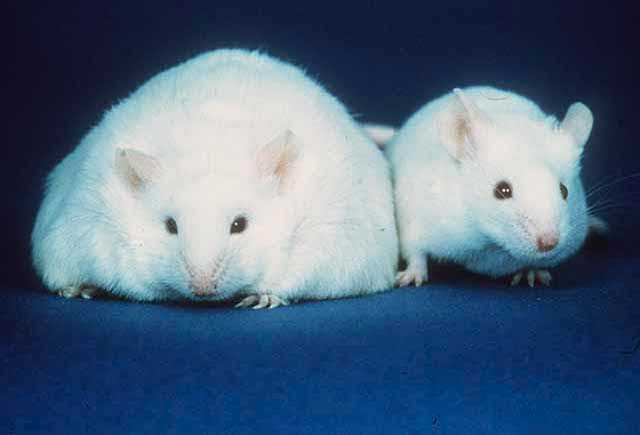Scientists looking for ways to combat obesity have found an enzyme that activates an appetite-stimulating hormone.
 Researchers have been hungry to track down this target since blocking its action could help to stifle food cravings in people who are trying to lose weight. Now, by using a genetic screening technique, University of Texas Southwestern researcher Mike Brown has found it. Dubbed "GOAT" (short for ghrelin O-acyltransferase), the new enzyme adds a chain of eight carbon atoms to a hormone called ghrelin, which is produced by the stomach and stimulates appetite.
Researchers have been hungry to track down this target since blocking its action could help to stifle food cravings in people who are trying to lose weight. Now, by using a genetic screening technique, University of Texas Southwestern researcher Mike Brown has found it. Dubbed "GOAT" (short for ghrelin O-acyltransferase), the new enzyme adds a chain of eight carbon atoms to a hormone called ghrelin, which is produced by the stomach and stimulates appetite.
When injected into animals and human subjects ghrelin boosts the urge to eat, whilst obese animals which have been genetically modified to lack the hormone or its receptor instead lose weight. But the hormone only exerts these appetite-inducing effects after it has been chemically modified by the addition of the carbon tail. Previous research in fruit flies had shown that enzymes that add carbon chains to proteins like ghrelin all share a similar fingerprint sequence.
So the researchers set about screening the mouse genetic code to look for signs of the same sequences. Using this approach they tracked down 11 genes and with one of them they hit the jackpot. By adding the gene to cells in a dish they were able to trigger the cells to produce the active form of ghrelin, demonstrating that they had identified the right gene.
Promisingly, ghrelin seems to be the only hormone in the body, at least as far as scientists can tell, that carries this 8-carbon unit activating tail, so scientists think that it should be relatively simple to block it and so combat the urge to binge.
"The discovery of GOAT opens the way to a search for chemical inhibitors that may be useful in controlling appetite" say the researchers. The proof as to whether it works or not will, of course, be in the pudding, or rather the lack of it!










Comments
Add a comment